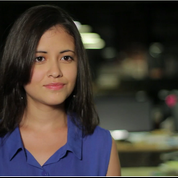
Region: Latin America
Category: Technology entrepreneurship
Development of today’s world is highly dependent on the access to the Internet. Virtually, every business and organization benefits from the use of the Internet, which has enabled numerous work opportunities to emerge. This has opened a way out of poverty for populations in developing countries. Coderise does not only give individuals these technological opportunities, but educates one how to manage it effectively . The organization offers the guidance to obtain work, both domestically and internationally, as well as how to start up a new technological business. Providing skills, tools and connections, Coderise enables high school students to earn a promising future.
The Peruvian director and founder of Coderise, Andrea Cornejo, is a serial social entrepreneur. In addition, she is also known as an economic development and impact evaluation specialist. In the past Andrea has founded both EmprendeSocial (the first online publication of social entrepreneurship in Latin America) and Proyecto Viña Vieja (a development initiative in Peru). Likewise, she has been involved in numerous organizations such as KNG health Consulting, France Amérique Latine and Partners of the Americas. Having received her education from several universities including: Harvard University, Pontificia Universidad Católica del Perú and Swarthmore College, Andreas project has a promising future.
For her various entrepreneurial endeavors she has received various awards. In 2009 she received both the Wilma A. Lewis Fund Scholar and the Peter-Merts Scholar for outstanding academic achievement. In 2010, Andrea was presented with the Swarthmore Intercultural Taslima Nasrin Community Builder Award. In the future Andrea and her team behind Coderise wish for at least fifteen students to graduate from the pilot program launch their first Coderise Hackathon at the end of the program and achieve a basic level of Javascript for 70 percent of students.
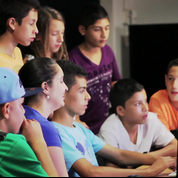
We chose to focus on high school kids because at this age a great amount of very successful programmers got their start. Also, at this age you can be heavily influenced before deciding what career path you want to take in college. We chose programming because it is a very concrete tool with a lot of values especially in today’s global markets. If one at least knows a bit of programming you can be both, much more competitive in the employment market and get one step closer to developing your own applications. Applications can help solving a problem you see in your daily life or in your community and get a head start from there.
How does Coderise support the students who participate?
The way our program works is that three times a week the kids come in and we have them follow a course given by two instructors for three hours. In these lessons they learn multiple concepts about programming, at the moment the class is focusing on Javascript. Additionally, each student has the opportunity to have a one-on-one conversation with distinguished tech entrepreneurs and programmers. We do this so they can get integrated with the tech community and continue to be connected after the program is done. We hereby give the students a direct opportunity to become part of the tech entrepreneurial network. Whether the students go through to college or straight into the working environment they have resources to start. They both obtain valuable skills and connections.
Why is technology entrepreneurship good for the future?
Coderise is based on the idea that in the future technology is going to allow everyone to have the same knowledge. The access to technology is lower in the developing areas, which hinders individuals who do not go to the best schools and have academic backgrounds to be just as likely to innovate compared to other developed communities. This is the reason why we are giving them the tools, the programming skills as well as the recourses to help these people along to a successful career path. Through technology anyone can become an entrepreneur and learn about entrepreneurship, as one needs little financial capital to get started.
From your point of view, how does Columbia foster entrepreneurship? Do they do this successfully?
The technology field is slightly different from other places because it is quite easy to get started due to reduced capital requirements (e.g. labor costs) to get started. Columbia is a country to follow as an example for Latin America because the government is providing resources and promotes an ecosystem of entrepreneurship, which is the initial thing that needs to happen. How to foster social entrepreneurship is a combination of having the right knowledge and connections. Columbia is doing this quite well from a government point of view, as they are seeking to look into and connect with key stakeholders out of the country, to bring back successful initiatives and bring these together with aspiring entrepreneurs in Columbia. This is done to secure good mentorship and guidance, which needs to happen in order to create a healthy entrepreneurial ecosystem.
How did you make your project financially sustainable?
For our pilot program we decided to do a crowdfunding campaign where we acquired the minimum funds that we needed to make our program successful. Additionally, we will most likely launch more structured campaigns at the end of the program for the future. However, it was mainly through a campaign advert through crowd funding and stretching across our networks to receive individual support from sponsors. These sponsors were also local companies that are especially development focused in Medellín.
What restrictions do up-starting social entrepreneurs face in your country? How can they overcome these restrictions?
From my experience in Peru it gets really difficult with Bureaucracy. This is because even at the point when your project is bringing in volunteers and receiving donations from other governments, there are several conflicts with local entities. These conflicts make it difficult to initiatives to take place. Governments are often not good at making initiatives in different sectors work well together. This causes government responses to initiatives to be unclear and slow. Social entrepreneurs must “pick up the slack” and articulate how an initiative fits in with government objectives, because often this won’t be clear. Social entrepreneurs have to be persistent and develop strong communication skills. Work with deadlines and be very precise with every entity that is involved, local or national.
Do you believe that the biggest barrier social entrepreneurs face is the government?
No, there is always a way around the government. If it is necessary there are always short cuts one can take. The more significant problem a social tech entrepreneur can face is his or her team. The team has to be organized and consistent. Also, finding a way to ensure the sustainability of the organization and developing a way to effectively evaluate your results. The results have to be presented to the sponsors in order to get more support. When all of these objectives are met, it makes the difference between a successful and an unsuccessful project.
What were the most significant barriers you met when you founded Coderise?
Coderise is fairly young as we started developing the idea in April 2012. What was very challenging for me was to set up a team in a location where I was not physically present. I did go to Columbia eventually, however, my team did work on the idea of Coderise for a long time while I was still in New York. It has been especially difficult to start a program before having the money to be paying everyone for the work they do. It is therefore difficult to manage a structured team when most are working voluntarily. The two instructors for the current pilot program are also volunteering, as it is very new and experimental. However, for the future we would like to pay them, as we would like to keep them in the project.
How did you get motivated to start a technology education program in Columbia, sitting in New York and coming from Peru?
The social initiatives I led in Peru from 2006 to 2009 gave me experience in management of community development driven programs, skills applicable to any future endeavor. I gained a more articulate understanding of poverty, its origins, and traps from working on the ground. My perspectives and commitment toward economic development has always been global and never with geographical specifications.
Back in the US, I complemented these experiences within and out of the classroom discussions that led to a theory to reduce social inequality based on a not-so-popular tool: computer programming technology. To apply our theory, we chose Colombia for the pilot program for Coderise because it is a country with national (and regional) strategies to direct economic growth based on the technological sector. We also had a strong support in both network and tech community, which were essential.
Coderise - Code.Inspire.Create. from Coderise on Vimeo.
How did you experience the first few weeks and months when Coderise started?
It was a nice feeling finally having the project up and running, as we had been planning it for so long. Also, when the project hasn’t started yet it seems very vague and outlandish. We only got the instructors through our networks and connection with other people. At this point nothing was actually happening it was more recruiting the team and the curriculum technical advisors. So it was a great feeling that it was actually happening.
What can we expect from Coderise in the future?
On the level of our students, we can expect the graduating students to have basic working knowledge of Javascript, CSS and HTML. Furthermore, we can expect them to be more competitive in whatever they choose to do, both in college and in the working field. We also want them to be empowered by the motivational speakers they heard and use the skills they have learnt to be able to go out into the world and create and innovate the solutions to problems they encounter. In addition, we can expect an expansion in the model of Coderise, once we analyze results at the end and evaluate what needs to change to improve the program. Then, connect with others to figure out where there are more resources and support to expand Coderise as a program.
In the long term I hope Coderise will enable more people to understand what a great tool programming is and everything it can be used for. Also, for the project to grow and expand into other countries and have different communities have ownership of Coderise to see students get more competitive on the career they decide on. Finally, seeing the next generation in Latin America becoming familiar and liking the idea of being able to innovate their technologies and ideas.
Do you have any advice to give to upcoming social entrepreneurs?
I have learnt from being a social tech entrepreneur that it is important to take your objective very seriously and treat it as seriously as if it was a for-profit business model, even when it is not. Also, accountability towards your volunteers and measuring impact through quantity of analysis of data we collect. It is additionally important to understand what each team member contributes with and have him or her work at high work standards. It is important to learn from the private sector as they are highly efficient in getting the job done.
Anything you would like to add?
I think there are more private sector opportunities focusing on development, more than what we dare to think. There may also be opportunities where there don’t appear to be any at all. I don’t think that tech entrepreneurship is the only way forward in the future, but I think it is often a tool that gets forgotten with respect to social economical development. Therefore, where it can fit in and act as a supporting tool, it should be.

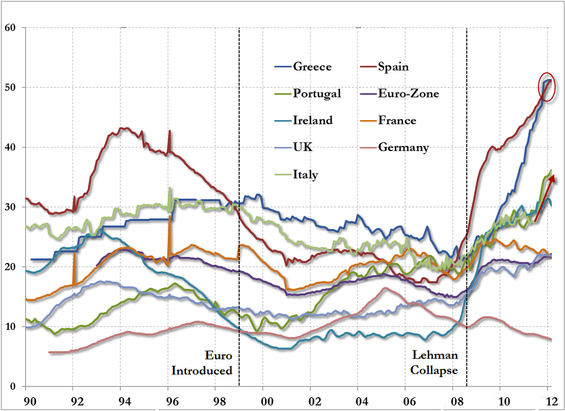
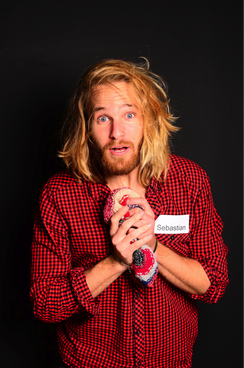
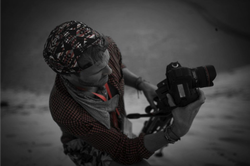
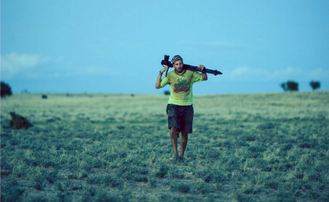
 RSS Feed
RSS Feed
